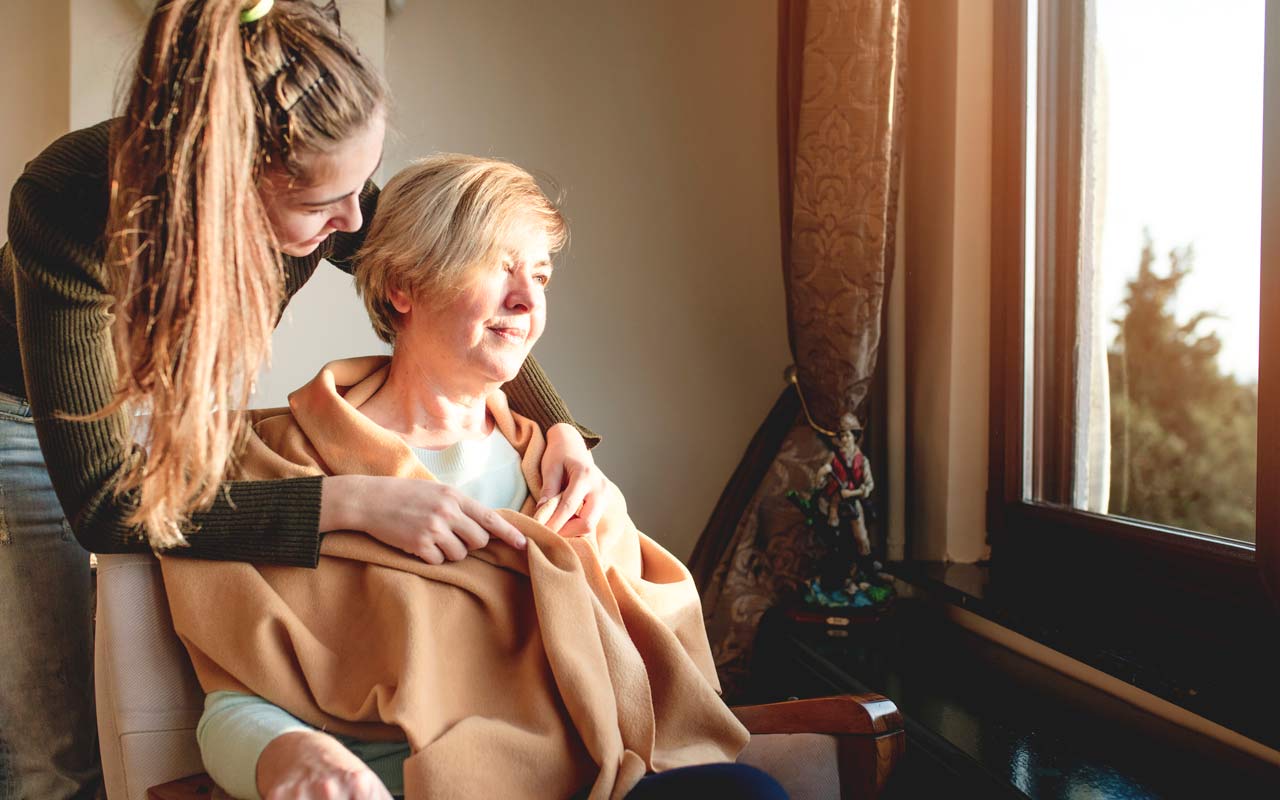7 Ways to Maximize Medicare Benefits
Medicare is vital to the health of nearly 60 million Americans.


Profit and prosper with the best of Kiplinger's advice on investing, taxes, retirement, personal finance and much more. Delivered daily. Enter your email in the box and click Sign Me Up.
You are now subscribed
Your newsletter sign-up was successful
Want to add more newsletters?

Delivered daily
Kiplinger Today
Profit and prosper with the best of Kiplinger's advice on investing, taxes, retirement, personal finance and much more delivered daily. Smart money moves start here.

Sent five days a week
Kiplinger A Step Ahead
Get practical help to make better financial decisions in your everyday life, from spending to savings on top deals.

Delivered daily
Kiplinger Closing Bell
Get today's biggest financial and investing headlines delivered to your inbox every day the U.S. stock market is open.

Sent twice a week
Kiplinger Adviser Intel
Financial pros across the country share best practices and fresh tactics to preserve and grow your wealth.

Delivered weekly
Kiplinger Tax Tips
Trim your federal and state tax bills with practical tax-planning and tax-cutting strategies.

Sent twice a week
Kiplinger Retirement Tips
Your twice-a-week guide to planning and enjoying a financially secure and richly rewarding retirement

Sent bimonthly.
Kiplinger Adviser Angle
Insights for advisers, wealth managers and other financial professionals.

Sent twice a week
Kiplinger Investing Weekly
Your twice-a-week roundup of promising stocks, funds, companies and industries you should consider, ones you should avoid, and why.

Sent weekly for six weeks
Kiplinger Invest for Retirement
Your step-by-step six-part series on how to invest for retirement, from devising a successful strategy to exactly which investments to choose.
Medicare is vital to the health of nearly 60 million Americans. Yet many of its benefits are overlooked, underused or misunderstood.
Consider the annual "wellness" visit, during which a doctor will assess your health risks, take your blood pressure and other routine measurements, check for cognitive impairment, and offer personalized health advice. It's free. Yet less than 11% of Medicare beneficiaries took advantage of the benefit in 2012, according to the Dartmouth Institute for Health Policy and Clinical Practice. Recent research suggests that number hasn't budged much since then.
That's not the only Medicare benefit left lying on the examining table. Many healthy seniors pass up a host of free preventive services, ranging from bone mass measurement to cancer screening–"the kinds of things that people don't generally think of if they're not sick," says Bonnie Burns, a consultant at California Health Advocates. Other benefits, such as home health care, often go unused because they have complex eligibility requirements.
If you need incentives to maximize the bang for your Medicare buck, here are about 6,000 of them: The average traditional Medicare beneficiary enrolled in both Part A and Part B spent $6,150 out-of-pocket on Medicare and Medigap premiums, doctor visits, drugs and other health care needs in 2013, according to the Kaiser Family Foundation. That number looks even larger when you consider that half of Medicare beneficiaries have annual income below $26,200.
Here are seven ways to get better care for less from Medicare.

Take the Medicare Freebies
Many Medicare beneficiaries "don't know there's a whole list of things they can get that have no co-payments," says Burns, the California Health Advocates consultant. These include screenings for cardiovascular disease and depression, counseling to help you quit smoking, and flu and pneumonia vaccines. (Download a complete guide to Medicare's preventive services.)
You're also eligible for a free ™welcome to Medicare" preventive visit within the first 12 months that you have Medicare Part B. And as part of your annual wellness visit, you can get free help planning for end-of-life care, and your doctor can help you complete an advance directive that spells out your wishes. (If you schedule a separate visit to discuss end-of-life care with your doctor, you'll pay the standard 20% Part B co-insurance.)
If you have a Medicare Advantage plan, you may also have access to free wellness benefits. Some Advantage plans, for example, offer SilverSneakers membership at no additional cost. This program gives you a basic gym membership and access to group exercise classes designed for seniors.

Choose the Right Medicare Provider
So you're on original Medicare, and you've found a good doctor who treats Medicare patients. Job done, right?
Wrong. You need to know whether the doctor accepts the Medicare-approved amount as full payment for services–known as "assignment"–meaning you can't be billed for more than your Medicare deductible and co-insurance.
Most doctors treating Medicare patients accept assignment. Those who don't fall in two categories: nonparticipating providers, who can charge up to 15% more than a reduced Medicare-approved amount for Medicare-covered services and leave you responsible for the extra charges; and "opt out" providers, who can charge whatever they want, as outlined in a private contract with the patient.
To find doctors in your area who accept assignment, go to find doctors and other health professionals at Medicare.gov. The search tool indicates which doctors accept Medicare payment amounts.
If you have a Medicare Advantage plan, check your plan's provider directory or website to be sure you're choosing doctors who are in the plan's network–keeping in mind that doctors may be added to or removed from the network at any time. You'll generally pay more to see out-of-network providers.

Save on Drugs
Even if you have Medicare Part D prescription-drug coverage, your out-of-pocket costs can be eye-popping–in part because Part D doesn't put a cap on out-of-pocket spending. Once their spending has reached the "catastrophic" coverage threshold of $5,000 in 2018, most people still must pay 5% of the cost of covered drugs.
In some cases, you can rein in drug costs by forgetting your Part D plan and simply paying cash. The reason: Big-box stores, such as Costco and Target, "have a host of generics they offer for a few dollars," whereas many Part D plans have higher standard co-pays–say, $10 every time you fill a prescription, says Ann Kayrish, senior program manager for the National Council on Aging's Center for Benefits Access. The downside of simply paying cash: The cost won't count toward your deductible.
When using your Medicare Part D plan, you'll generally pay less if you stick with your plan's list of "preferred" pharmacies. Also review your plan's formulary. Most Part D plans divide their formularies into five cost-sharing tiers–preferred generic, generic, preferred brands, nonpreferred and specialty drugs–with the lowest-tier preferred generics being the cheapest for enrollees. If you see a drug approved for your condition that's on a lower tier than one you're currently taking, ask your doctor if it's appropriate for you.

Understand Medicare Home Health Benefits
After Connie Henderson's husband, Eugene, was diagnosed with a rare genetic condition that causes lung problems, a doctor gave the rural Minnesota couple a bit of good news: Medicare's home health benefit would pay for a nurse to come to their home and administer the weekly plasma infusions that Eugene would need to treat the condition.
Unfortunately, the doctor was wrong. Because Eugene was not homebound, the home health agency said, he didn't qualify for the Medicare benefit, and the Hendersons would have to pay about $200 a week for the service. That left Connie, 66, in a bind: She could let her husband go to an infusion center at a clinic, where she feared exposure to other ill patients could damage his health, or learn to give the intravenous infusions herself. She chose the latter. At first, it was "scary," she says. "I didn't think we could do it."
As the Hendersons discovered, even health providers have a hard time understanding Medicare's home health care benefit. To qualify, you must need skilled services such as nursing, physical therapy or speech therapy. And you must be "homebound," meaning you have difficulty leaving home without help or leaving home isn't recommended because of your condition.
Another stumbling block: "People choose an agency that's not Medicare-certified," says Denise Sikora, owner of DL Health Claim Solutions, in Lady Lake, Fla. In that case, she says, "they're not getting covered by Medicare." Here's where to find and compare Medicare-certified home health agencies.
Even when patients meet all the requirements, they're often inappropriately denied benefits, says Judith Stein, executive director of the Center for Medicare Advocacy. One issue: Many Medicare beneficiaries have been told their home health coverage is ending because their condition is not improving. But "improvement is absolutely not required in order to get home care," Stein says. Medicare will cover home health care "to maintain a person's condition or slow their decline," she says, "and that's very important for people with Alzheimer's, stroke or paralysis."

Fight for Your Rights
What should you do if you suspect you've been inappropriately denied Medicare benefits? Marshal some allies–which may include your doctors, state health insurance assistance program (SHIP) and patient advocacy groups–and fight back.
Review your quarterly Medicare summary notice, which shows services or supplies billed to Medicare. If any claims have been denied, first call the provider. Often, the problem is as simple as the provider having entered the wrong billing code, Stein says.
If the claim was submitted correctly, consider filing an appeal. Instructions are on the last page of the Medicare summary notice. Your state health insurance assistance program may be able to provide sample letters of appeal and follow up with further assistance as your claim progresses, Kayrish says.
In some cases, Medicare beneficiaries must fight for their rights on the fly. If you are in the hospital and believe you're being discharged too soon, for example, you have the right to an expedited review of your case. Within two days of a hospital admission, you should receive a notice labeled "an important message from Medicare about your rights," which includes information on appealing a discharge decision. Until you get a decision on your appeal, "you stay in the hospital bed," says Diane Omdahl, president of Medicare consulting firm 65 Incorporated.

Explore Money-Saving Programs
Seniors living on a limited income may qualify for Medicare Savings Programs that will help cover Medicare Part B premiums and in some cases deductibles and co-payments, too. Although the programs help cover Medicare costs, they're administered by state Medicaid programs, and eligibility requirements vary from state to state. While all states restrict these programs to people with relatively modest incomes, a number of states–including Connecticut, Delaware and New York–have no limit on assets, so retirees who have built up a nest egg may qualify. If you're enrolled in a Medicare Savings Program, you automatically qualify for "Extra Help," which helps pay Medicare Part D drug costs.
Many states also offer State Pharmaceutical Assistance Programs (SPAPs), which can help cover Part D premiums, co-payments and other costs. In some cases, the income limits are "higher than you would think," says Casey Schwarz, senior counsel at the Medicare Rights Center. New York's program, for example, accepts seniors with income up to $75,000 if single or $100,000 if married.
To see if you qualify for a money-saving program, contact your SHIP or go to benefitscheckup.org.

Medicare Hospice Benefit
Many Medicare beneficiaries with the most severe health problems are missing out on some key benefits, Medicare experts say.
Among beneficiaries with a terminal illness, for example, hospice is "greatly underused," Omdahl says. If you're expected to live six months or less, the hospice benefit can provide care in your own home, drugs for controlling symptoms and relieving pain, respite care that allows family caregivers some time off, and other services. Under hospice, Medicare won't cover treatments that are meant to cure your terminal illness, but you can still receive treatment for other conditions. Hospice "doesn't mean you're giving up," Stein says. In fact, she says, "with good hospice care, people sometimes live longer, because so many of their needs are met."
Profit and prosper with the best of Kiplinger's advice on investing, taxes, retirement, personal finance and much more. Delivered daily. Enter your email in the box and click Sign Me Up.

-
 Dow Leads in Mixed Session on Amgen Earnings: Stock Market Today
Dow Leads in Mixed Session on Amgen Earnings: Stock Market TodayThe rest of Wall Street struggled as Advanced Micro Devices earnings caused a chip-stock sell-off.
-
 How to Watch the 2026 Winter Olympics Without Overpaying
How to Watch the 2026 Winter Olympics Without OverpayingHere’s how to stream the 2026 Winter Olympics live, including low-cost viewing options, Peacock access and ways to catch your favorite athletes and events from anywhere.
-
 Here’s How to Stream the Super Bowl for Less
Here’s How to Stream the Super Bowl for LessWe'll show you the least expensive ways to stream football's biggest event.
-
 States That Tax Social Security Benefits in 2026
States That Tax Social Security Benefits in 2026Retirement Tax Not all retirees who live in states that tax Social Security benefits have to pay state income taxes. Will your benefits be taxed?
-
 What to Do With Your Tax Refund: 6 Ways to Bring Growth
What to Do With Your Tax Refund: 6 Ways to Bring GrowthUse your 2024 tax refund to boost short-term or long-term financial goals by putting it in one of these six places.
-
 What Does Medicare Not Cover? Eight Things You Should Know
What Does Medicare Not Cover? Eight Things You Should KnowMedicare Part A and Part B leave gaps in your healthcare coverage. But Medicare Advantage has problems, too.
-
 12 Great Places to Retire in the Midwest
12 Great Places to Retire in the MidwestPlaces to live Here are our retirement picks in the 12 midwestern states.
-
 15 Cheapest Small Towns to Live In
15 Cheapest Small Towns to Live InThe cheapest small towns might not be for everyone, but their charms can make them the best places to live for plenty of folks.
-
 15 Reasons You'll Regret an RV in Retirement
15 Reasons You'll Regret an RV in RetirementMaking Your Money Last Here's why you might regret an RV in retirement. RV-savvy retirees talk about the downsides of spending retirement in a motorhome, travel trailer, fifth wheel, or other recreational vehicle.
-
 The 24 Cheapest Places To Retire in the US
The 24 Cheapest Places To Retire in the USWhen you're trying to balance a fixed income with an enjoyable retirement, the cost of living is a crucial factor to consider. Is your city the best?
-
 Medicare or Medicare Advantage: Which Is Right for You?
Medicare or Medicare Advantage: Which Is Right for You?From overall costs to availability of care, here's what to know about the differences between traditional Medicare and Medicare Advantage plans.
